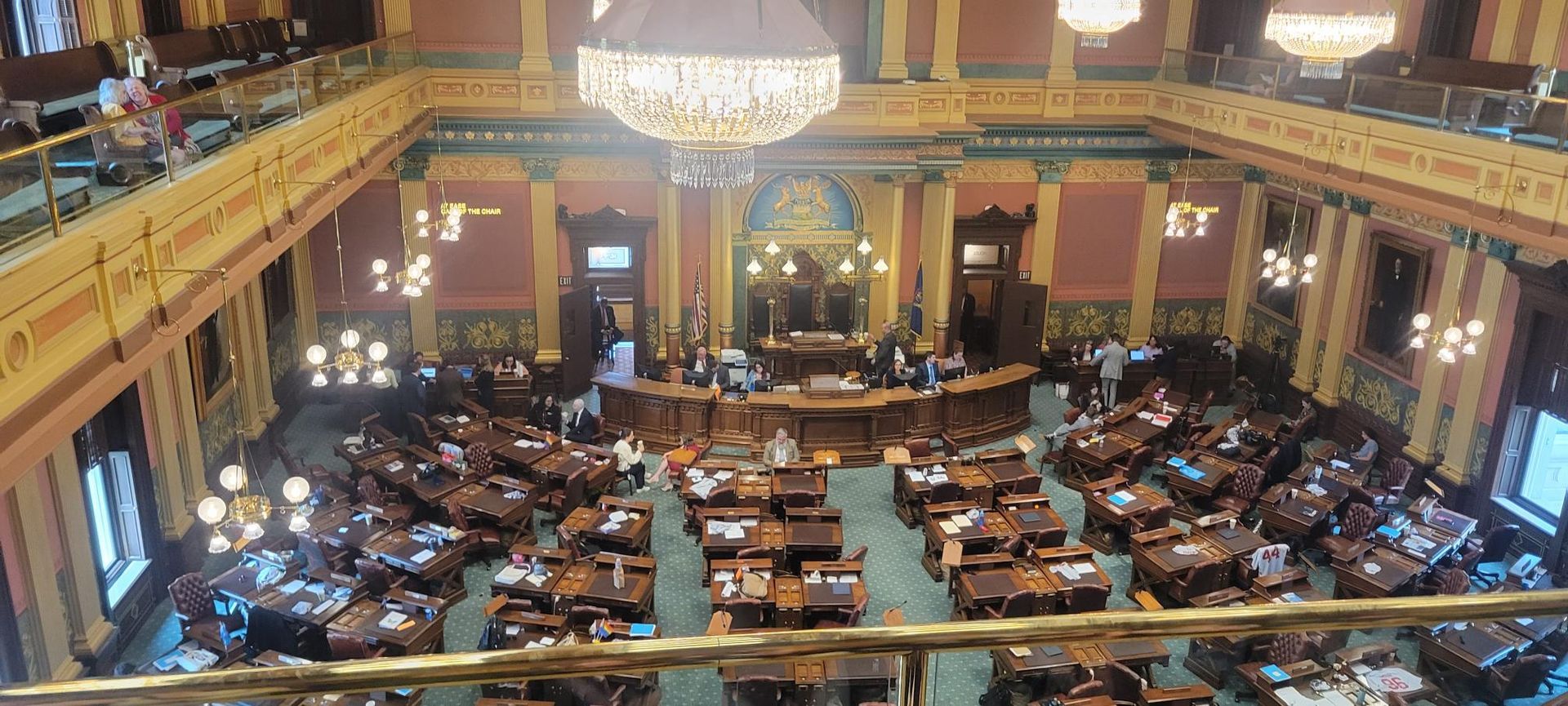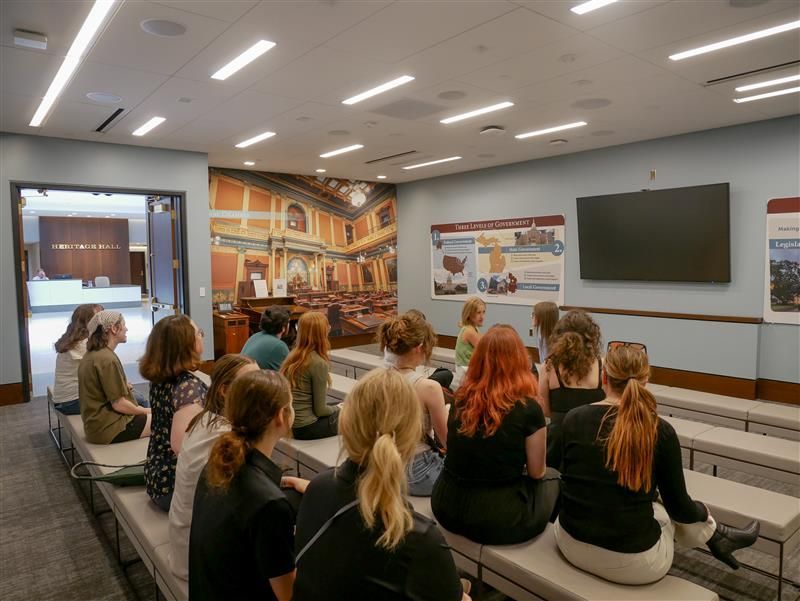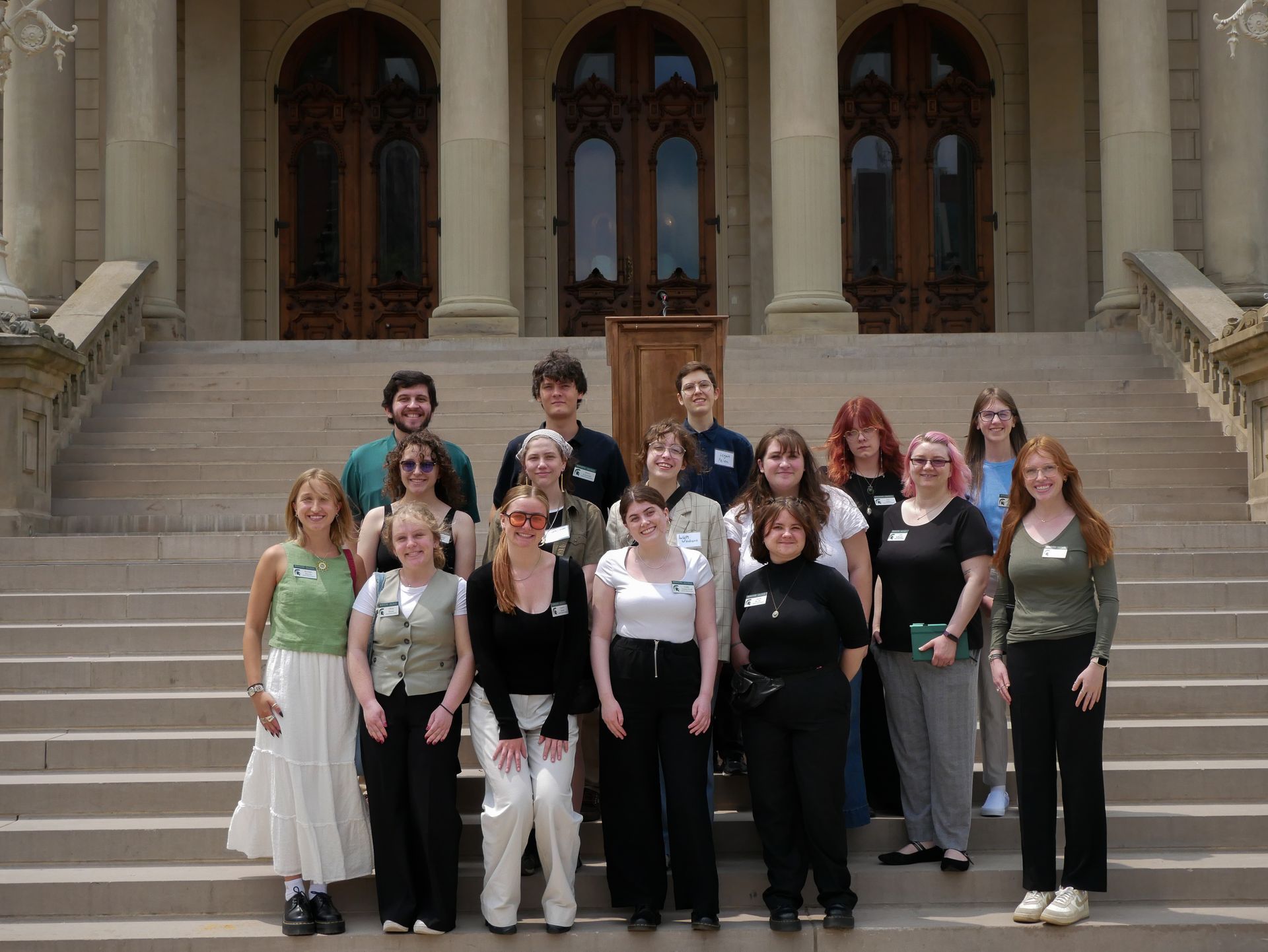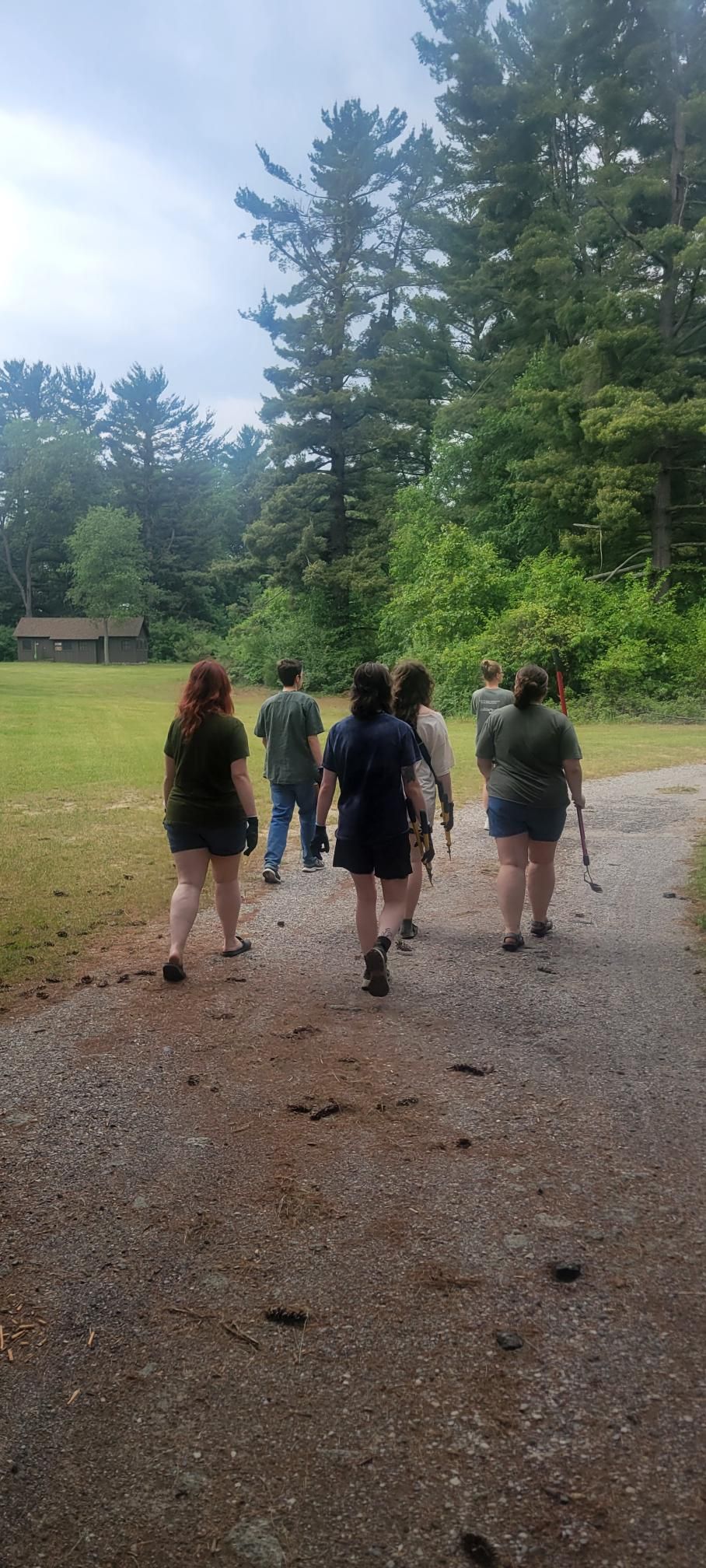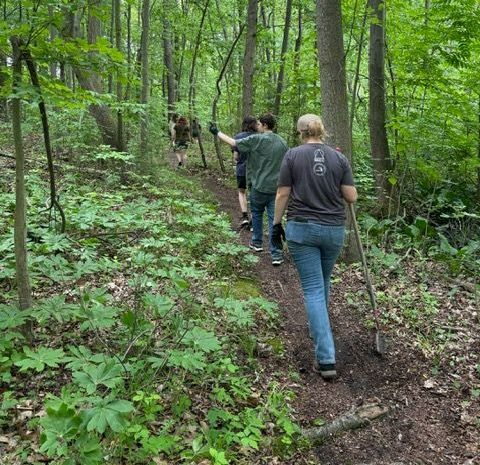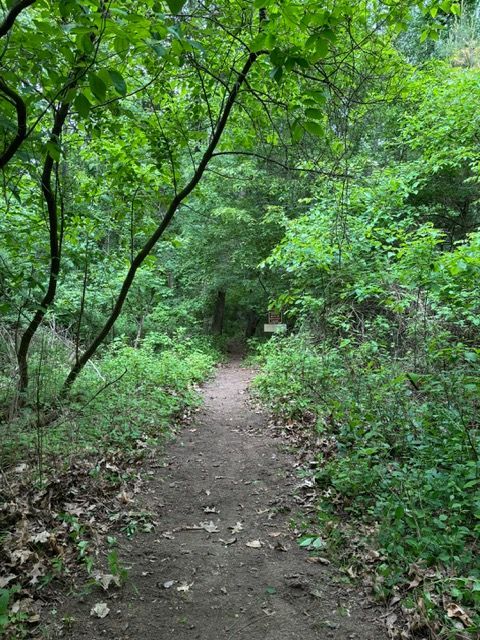Conservation Cohort: Training Young Conservationists
Last week, on June 3rd and June 4th, Michigan United Conservation Clubs (MUCC) hosted a two-day training for young professionals interested in natural resources. Attendees within the cohort included MSU Glassen Scholars, among other students from universities across the state. This training was built to help students interested in conservation learn about policy and careers within the realm of natural resources. This training was supported by a grant from the Abrams Foundation, which funded housing, food, and gifts for the young professionals in attendance. The Abrams Foundation has supported past Conservation Cohort trainings in which we appreciate their support in striving toward our mission to unite citizens to conserve, protect, and enhance Michigan’s natural resources and outdoor heritage.
Day 1: Policy Processes
The first day of the training, the students met at MUCC headquarters for a day focused on conservation policy. MUCC’s policy team led the conversation, discussing the history of the organization and its grassroots policy process. After lunch, students traveled to meet with MUCC’s lobbyist Bill Jackson, Senator Jon Bumstead, and interim Chief of Staff Nick Haas as a panel of professionals in policy. To wrap up the day, the group toured the Capitol and had the opportunity to see the House floor between sessions. The students dove headfirst into the policy process to learn how it plays into the success of conservation efforts led by organizations like MUCC, fighting for natural resources.
Day 2: Conservation Careers
The final day of the training was geared toward connecting the students to active conservation professionals from different backgrounds and career paths. Our guest speakers were from the DNR Law Enforcement Division, Go Grow Plant Natives LLC, National Wild Turkey Federation, and MSU Extension. The diversity of speakers demonstrated the various avenues one can travel based on their interests in conservation, whether they are more interested in the educational realm or contributing directly to conservation and habitat. This intimate setting provided the opportunity for questions and conversations surrounding careers in conservation. To wrap up the final day of the training, students participated in a project to improve 0.4 acres of access trails by removing invasive species along Waterloo State Recreation Area and the Michigan Out of Doors Youth Camp.
Recent Posts


